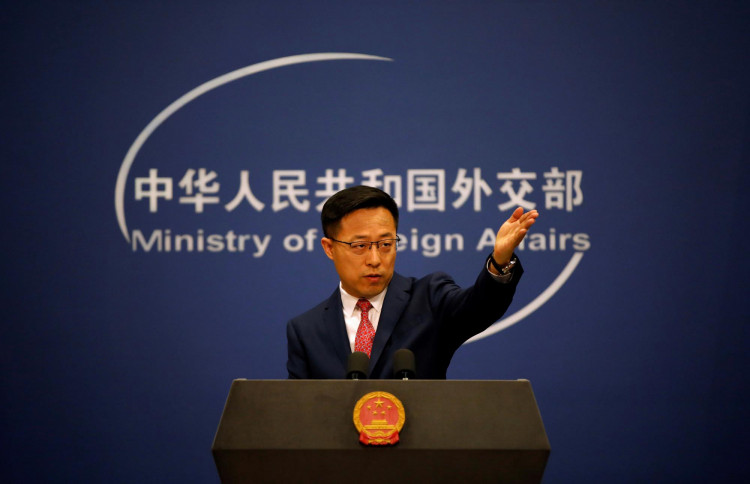Wife Of Ex-Faraday Future CEO Banned From Leaving China
The wife of Faraday Future and LeEco founder Jia Yueting has been banned from leaving China by the Shanghai People's Court over nonpayment of US$76 million to the Shanghai branch of the China Merchants Bank.
The court said Gan Wei, who is a co-founder with her husband of the two failed new-energy car companies, had defaulted on a loan for LeEco media subsidiary LeView.
On July 16, 2015, LeView and China Merchants Bank forged a credit facility agreement that allowed LeView to borrow up to RMB2.2 billion (US$315 million) though July 16, 2017. Gan and Jia guaranteed payment of the full loan. China Merchants Bank applied for judicial action after LeView failed to repay the loan or make interest payments.
Jia left China in 2017 and has not yet returned, but he put Gan in charge of cleaning up his LeEco mess. In 2018, the Shanghai No. 1 Intermediate People's Court ruled that LeView Mobile HK had to repay RMB500 million (US$71.5 million) plus RMB19 million (US$2.7 million) in interest to a China Merchants Bank branch in Shanghai.
In November 2019, Gan initiated divorce proceedings and demanded Jia repay up to US$571 million, but the case remains pending. Meanwhile, Jia resigned as CEO of Faraday Future, an electric car company based in California, and filed for bankruptcy with a personal debt of over US$3.6 billion. His bankruptcy restructuring plan formally came into effect in May.
China Retaliates Against U.S. Visa Restrictions
China will impose visa restrictions on U.S. officials or other people who have engaged in "egregious" behavior over the Tibet autonomy issue, in response to the recent visa restrictions the U.S. government imposed on Chinese government officials, China's Foreign Ministry said.
Foreign Ministry Spokesman Zhao Lijian said on Wednesday that Beijing would not allow foreign interference in Tibetan affairs and urged Washington to stop interfering in China's domestic affairs by "going further down the wrong path of undermining U.S.-China ties."
U.S.-China ties are already under heavy stress since China imposed its new national security law on Hong Kong.
China's latest move came after U.S. Secretary of State Mike Pompeo announced on Tuesday that Washington would restrict visas of Chinese officials whom it determined to be "substantially involved in the formulation or execution of policies related to access for foreigners to Tibetan areas."
Zhao added in the statement that China will not change its policy of welcoming foreigners to visit, tour and do business in the Tibet region on the prior condition that foreigners respect and obey China's laws and regulations.
China Cracks Down On OTC Funding Violators
The China Securities Regulatory Commision this week publicly named 258 illegal over-the-counter funding platforms, part of the government's plan for strengthened oversight of the sector.
The violators all offered illicit financing to customers through mobile Apps, WeChat public accounts and other digital platforms. All of them claimed to provide secure funding channels, with quick cash withdrawal options or offer high profits through leveraged stocks.
The CSRC exposed to the public how the operators lured investors to illegal funding activities through a variety of gimmicks, and reminded investors that none of the over-the-counter funding platforms were officially sanctioned to carry out securities business operations. Some are suspected of engaging in fraudulent activities, the CSRC said.
In November 2019, the Supreme People's Court issued the "Minutes of the National Court Civil and Commercial Trial Work Conference," which emphasized the illegality of off-site funding, and made it clear that off-site funding contracts are not valid under Chinese law. The court said it would not back investors who sought compensation for losses from scam operators.
Two Chinese Sites Receive UNESCO Global Geopark Designation
Xiangxi Geopark and Zhangye Geopark have received the Global Geopark Label from the Paris-based United Nations Educational Scientific and Cultural Organization (UNESCO), according to the State Administration of Forestry and Grassland (SAFG).
Located in the Tujia ethnic group in the Miao autonomous prefecture of Hunan province, part of the South Central China region, Xiangxi Geopark contains 160 sites with cultural relics from the Paleolithic Neolithic Ages. The other newly designated site, Zhangye Geopark, located in Gansu province in Northeast China, features bright-colored folded mudstones and sandstones and nine ophiolite uplifted from an ancient ocean bed.
An SAFG representative said that to echo UNESCO's initiative to establish "a global geopark network," China began its initiative to declare and build global geoparks in 2003 and so far has developed 41 geopark sites. There are currently 161 geoparks worldwide.
World Artificial Intelligence Conference Opens
The World Artificial Intelligence Conference (WAIC) kicked off on Thursday in Shanghai and will last through July 11, with ove 500 companies and agencies participating in the event, Shanghai Securities News reported.
Domestic and international tech firms like Microsoft, Amazon, Alibaba, Tencent, Huawei and JD.com, leading auto manufacturer SAIC, three telecom operators in China and AI startup companies like SenseTime and Cloudwalk are hosting exhibitions at the conference, which combines traditional exhibitions and conferences with 24-hour live-streaming on the WAIC's official website.
Organized by the Shanghai Municipal People's Government, the WAIC this year is themed around "Intelligent Connectivity, Indivisible Community" and focuses on showcasing the globalizing trend of AI technology applied in various scenarios.
Top tech executives including Alibaba Group founder Jack Ma and Ma Huateng, CEO of Chinese internet Goliath Tencent, are expected to participate in online forums.





